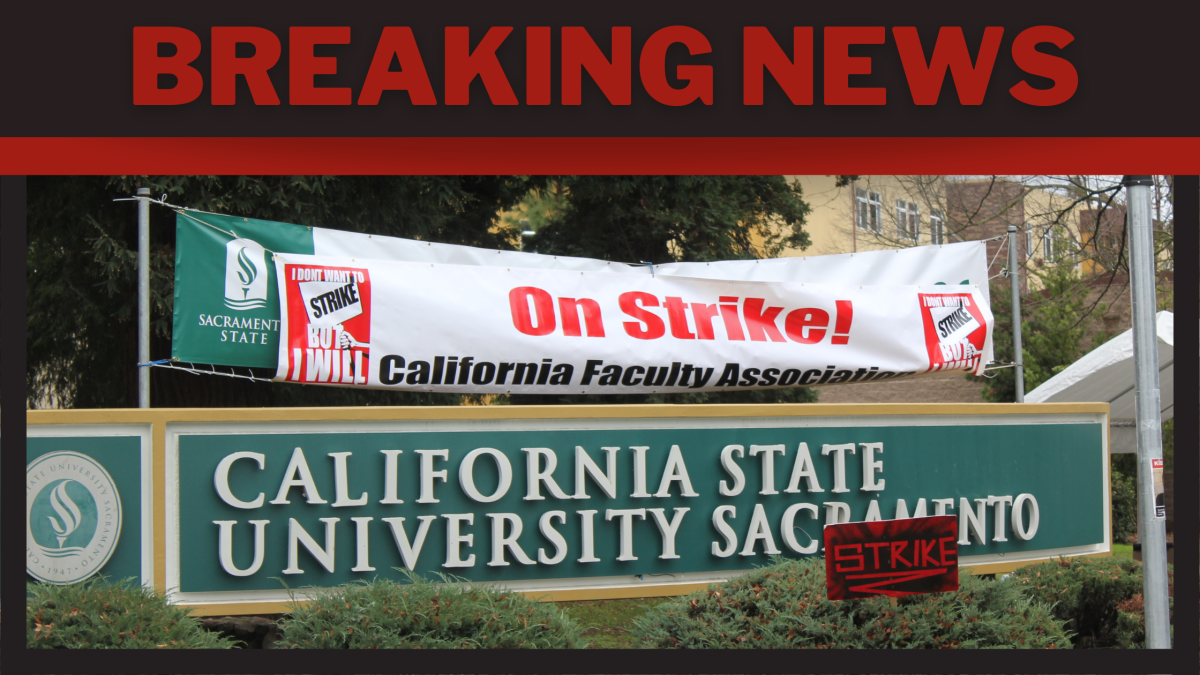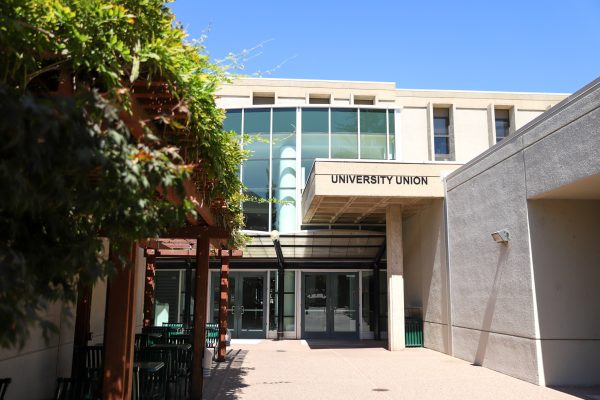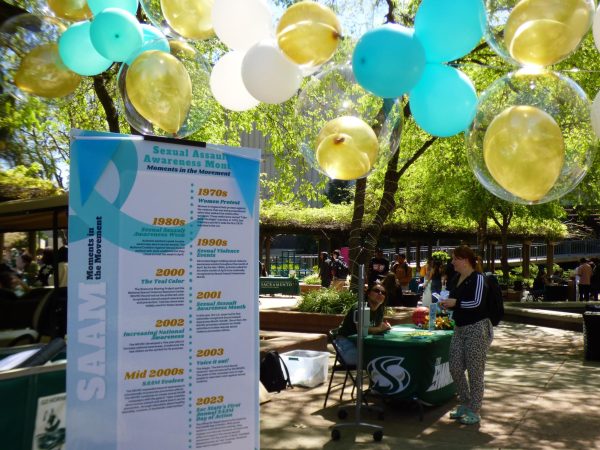Grant used for mentoring program and game design
February 9, 2011
The Sacramento State/UC Davis Mathematics, Engineering, Science and Achievement Center, along with two other organizations, received a $740,489 grant for a game design and mentoring program from the National Science Institute.
TheCenter exposes elementary, middle and high school students to careers in science and math.
Sac State’s College of Engineering and Computer Science and the School of Education are the two other organizations that received funds for creating and administering the program.
The grant was written and submitted by computer science teacher Scott Gordon, childhood development teacher Kimberly Gordon Biddle and Jean Crowder, director of Mathematics, Engineering, Science and Achievement.
A collaboration of faculty members and industry professionals will be putting together a curriculum designed to connect kids to technology.
Sac State students will have the opportunity to earn a paid position mentoring the Mathematics, Engineering, Science and
Achievement high school students and connect with professionals in the industry. Mentors will help students with their homework and will go to science activities with the students once a month. Mentors will also educate students on what college is like and what must be done to get in.
“Sac State has a huge investment not only in terms of development but in the outcome,” Crowder said.
Crowder said by exposing students to science, technology, engineering and math majors early on, students have more educational opportunities at Sac State.
Sac State students and faculty will be teaching computer programming for two summers and will give reinforcement during the academic year. College mentors who are computer majors will receive salaries.
While the students they mentor will receive payment through incentives and stipends, the money will also go to the College of Education for motivation workshops for parents and students.
“This is a deeply involved Sac State-based grant,” Crowder said.
Kimberly Gordon Biddle, associate professor of childhood development, said “it’s a loss to the field” when a student takes a computer science course and drops out in the first to second week, “We’re trying to get them to stay even though it’s intellectually challenging.”
Biddle is developing the motivational component of the program, which uses workshops for parents to learn how to help their child in the mathematics and science and the importance of the subjects. Mathematics, Engineering, Science and Achievement students will realize that they can create a video game, not just play one, Biddle said.
According to the Bureau of Labor Statistics, by 2018 the demand for computer programmers and software engineers will reach 1.6 million, a 21 percent increase from 2008 levels. It is predicted that the United States will only produce a third of the amount of graduates needed in those fields.
Since the mid-1980s, the proportion of women pursuing computer science degrees has declined, according to a Women in Science, Technology, Engineering and Math fact sheet.
Kimberly Bancroft, assistant professor in teacher education, said women should be confident pursuing majors like math and science.
“Many women want to have careers in these areas, but may be intimidated because of their upbringing or weren’t directed into the math and science fields,” Bancroft said. “If women need extra tutoring to get through difficult material in order to achieve their dreams in the sciences then a program that specifically mentors such students will be useful.”
Junior chemistry major Liliya Mazur is a first-generation college student and was a member of the Mathematics, Engineering, Science and Achievement program at American River College for three years.
Mazur said speaking with professors in her desired field helped her to learn about practical experiences she could expect in her future career.
Sac State mentors can expect to shape the educational experiences of disadvantaged students by encouraging motivation, Gordon said.
“Hopefully this approach is successful and is a model for other places,” Gordon said.
Mallory Fites can be reached at [email protected]








































































































































